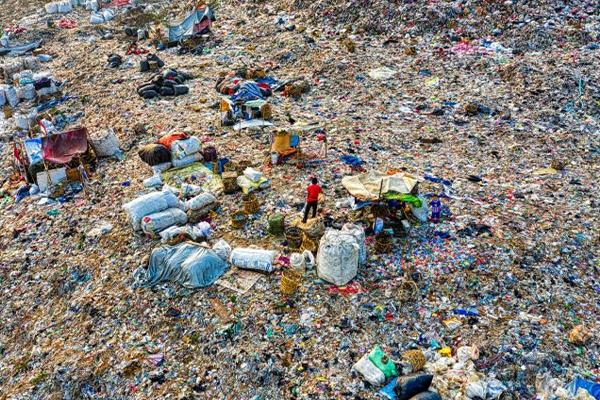E-waste and child labour: the sad truth of children working in the ‘informal’ recycling industry

Improper e-waste management is having serious impacts on our environment, and if not addressed soon, will have major negative consequences for future generations. It is also fueling a darker industry that is impacting some of the world’s most vulnerable individuals.
The rapid advancements in technology and an increasingly throwaway culture has meant e-waste has grown into a major global issue in recent years. Sadly, the majority of old tech and electrical items are not formally and responsibly recycled. Instead, they’re left undocumented, ending up either being sent to landfill, incinerated, or illegally exported, despite increasing e-waste policies and regulations.
This improper management of e-waste is having serious impacts on our environment, and if not addressed soon, will have major negative consequences for future generations. It is also fueling a darker industry that is impacting some of the world’s most vulnerable individuals.
The informal recycling industry
The developed world’s collective failure to improve and modernise formal e-waste management and recycling processes have meant alternative and unregulated industries are left to carry the burden – with a sizeable health and environmental cost.
In poverty-stricken communities in counties across Africa and Asia, many rely on e-waste to make a living. Employed in what’s termed as the ‘informal’ recycling industry, workers earn mere pennies by processing e-waste on disposal sites, carrying out activities such as sorting, manually dismantling, and incinerating scrap electronics.
However, studies have revealed that a significant proportion of the workforce is made up of children.
The informal nature of the industry makes it difficult to put a definitive figure on the prevalence of child labour in this stream of e-waste management, although research states that in developing nations and third world countries, thousands of children are working in unsafe conditions on these dangerous e-waste disposal sites every day.
In fact, reports have found children as young as just 5 years old employed to pick through waste, scavenge for parts, break down and burn old electrical equipment.
The risks and implications on our children
E-waste is known to be incredibly harmful to the planet and human health, as it is full of toxic substances and hazardous materials. The chemicals that e-waste contains and releases into the environment, such as mercury, lead, and even arsenic, can cause serious illnesses and damage to the health of those exposed to them.
Children and young people are particularly susceptible to the threats of improper e-waste processing activities as they are still growing. Facing exposure during these key stages of development means they are far more likely to suffer long-lasting and irreversible health conditions as a result. One report by a United Nations agency, estimated that 80% of children working on e-waste sites in China suffered from respiratory illnesses, lung diseases and high concentrations of lead in their blood.
Children working on e-waste sites will be in contact with these dangerous elements for long periods of time and on a daily basis. The longer and more constant the exposure, the higher the probability of them experiencing ill-health.
The unregulated landscape of the informal recycling industry also means health and safety measures and legislations can are essentially non-existent. Children will often be working on sites without proper equipment, training, processes, or protective gear. This not only leaves them vulnerable to the various toxins they are working around, but also susceptible to accidents and serious injuries from using improper methods and working on generally unsafe sites.
The UK is part of the problem
The UK is responsible for some of the highest e-waste figures per capita in the world and is one of the worst offenders for exporting waste to developing countries. This means we are fueling this dangerous industry, and to blame for putting the children working on e-waste sites in danger.
When managing your end-of-life technology, it’s critical to work with a recycling partner that provides a responsible, ethical, and environmentally sound service – and has the ability to prove it. Asking the questions and demanding transparency is the only way to protect children and poor communities and ensure e-waste doesn’t end up in the unregulated recycled space.
By recycling responsibly, you can help keep a child safe.






